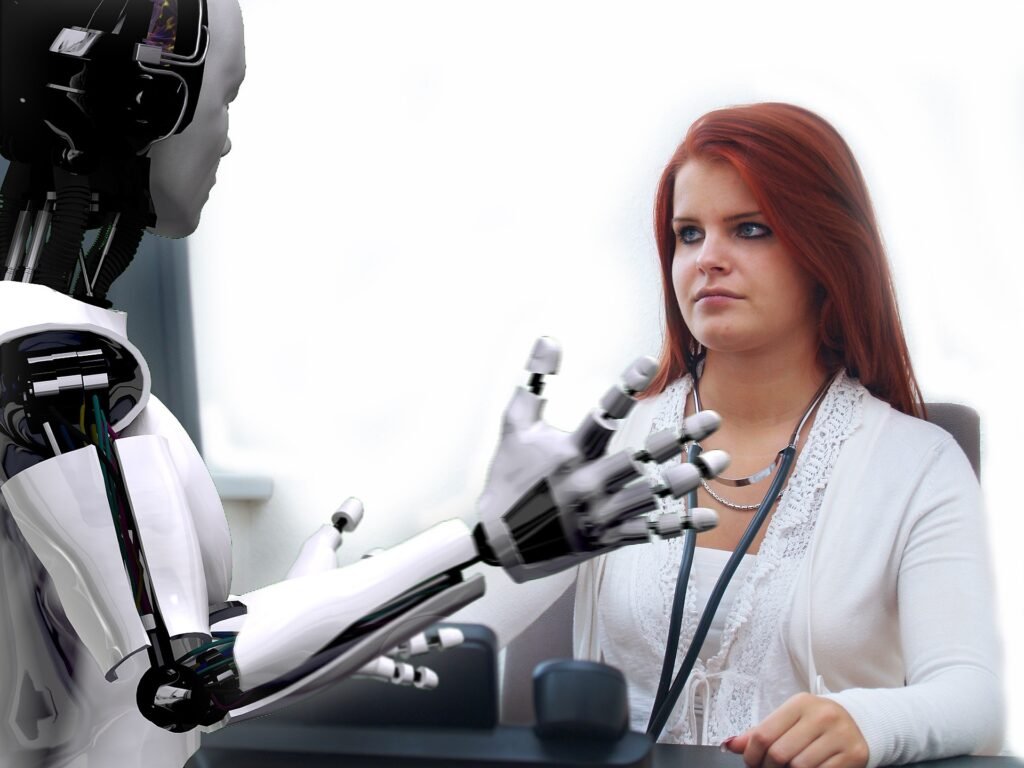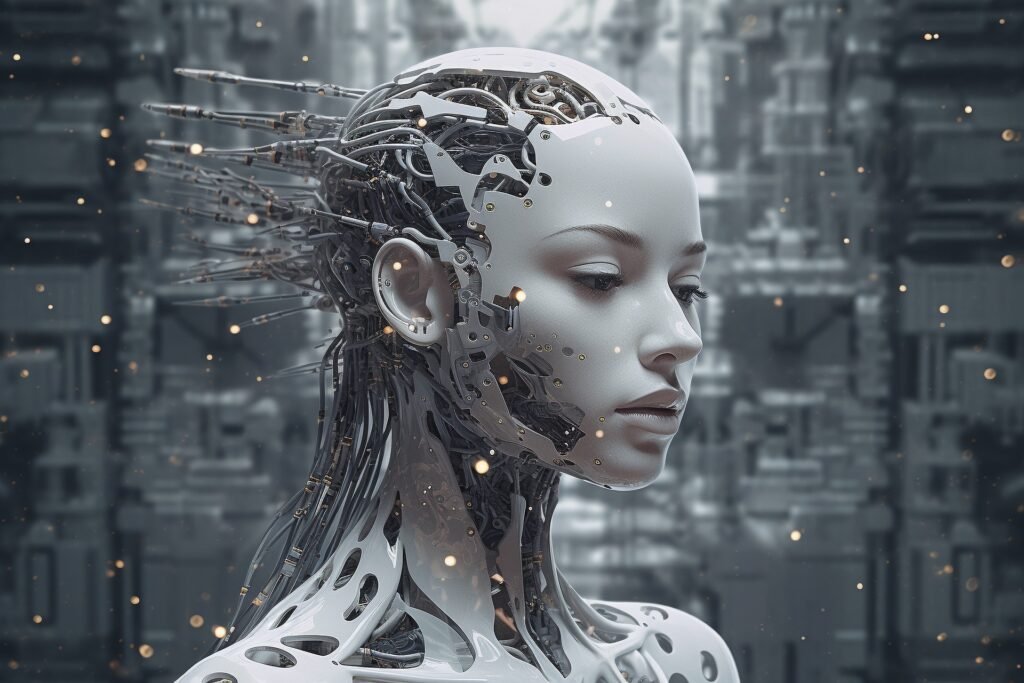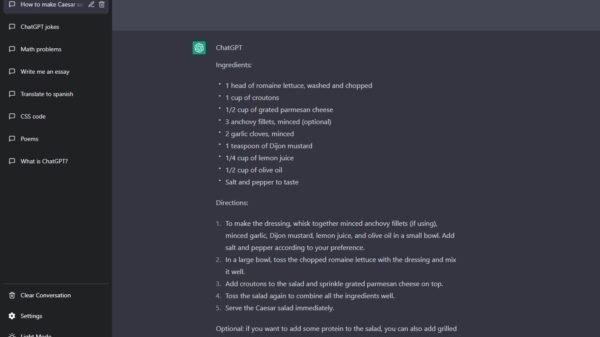The Future of Workforce: Automation and AI in the Service Industry
Discover how automation and artificial intelligence are reshaping the job market and employment trends in the future. Read our insights now.
KEY TAKEAWAYS
- Automation and AI are changing the nature of work, leading to the creation of new jobs and the displacement of specific roles.
- Routine tasks such as data entry and basic analysis are being automated, while complex decision-making tasks require human input.
- The adoption of AI and automation is increasing in industries such as healthcare, finance, and transportation.
- The need for employees with skills such as critical thinking, creativity, and adaptability is growing, while the demand for routine manual labor is decreasing.
- Education and training programs need to focus on preparing individuals for the new types of jobs that will emerge in the future.
- The use of AI and automation raises ethical concerns around job displacement, data privacy, and bias, which need to be addressed.
The job market is constantly evolving, and the future of work is set to be shaped by automation and artificial intelligence (AI). With advancements in technology, businesses are increasingly adopting automation and AI to improve efficiency and productivity. However, what does this mean for employment trends? This article will explore the impact of automation and AI on the job market and how it is reshaping employment trends. From routine tasks being automated to the emergence of new job types, the key takeaways from this trend will also be discussed. This article will also delve into the industries that are adopting these technologies, including healthcare, finance, and transportation. As you move towards a more automated world, it is essential to understand the skills that will be required in the future of work, such as critical thinking, creativity, and adaptability
The Impact of Automation and Artificial Intelligence on Employment
Automation and AI are rapidly changing the job market, creating both job displacement and job creation. The use of automation and AI is leading to the automation of routine tasks, which require less human intervention, leading to job displacement in certain areas. However, it is also creating new job types that require advanced skills, such as data analysis and programming.
Jobs that are most susceptible to automation
Jobs that involve routine and repetitive tasks, such as data entry, customer service, and assembly line work, are most susceptible to automation. As these tasks are more mechanical in nature, they can be performed by machines more efficiently and accurately. This trend is also spreading to jobs that require basic analysis, such as bookkeeping and accounting. This shift is making certain types of jobs redundant and could lead to job displacement for some workers.
Emerging jobs that require advanced skills
On the other hand, automation and AI are also creating new job types that require advanced skills, such as data analysis, machine learning, and programming. These new roles are becoming more prevalent in industries such as healthcare, finance, and transportation. For example, in healthcare, AI is being used to analyze medical images and diagnose diseases more accurately. In finance, AI is used for fraud detection and analysis of market trends. These new jobs require individuals with advanced skills, critical thinking, and creativity, and are opening up new opportunities for workers.
Skill Development for the Future of Work
As the job market evolves, it is essential for individuals to develop the skills required for the future of work. This shift requires workers to focus on developing advanced digital literacy, critical thinking, and soft skills.
Importance of digital literacy and critical thinking skills
Digital literacy and critical thinking are essential skills in the future of work. As more tasks become automated, workers need to be comfortable with digital tools and systems. They must have the ability to analyze complex data, identify patterns, and make sound judgments. Workers also need to learn how to adapt to new technologies and tools quickly. This shift requires the development of a growth mindset that encourages individuals to learn continuously.
Need for soft skills like emotional intelligence and creativity
The future of work also requires soft skills such as emotional intelligence and creativity. With the increasing use of automation and AI, the demand for jobs that require these skills is growing. Emotional intelligence is becoming more critical in customer-facing roles, as customers expect more personalized service. Creativity is essential in roles that require problem-solving, innovation, and collaboration.
overall, automation and AI are reshaping the job market, creating both job displacement and job creation. While certain jobs are becoming redundant, new opportunities are emerging in industries that require advanced skills such as data analysis and programming. To succeed in the future of work, individuals must develop the skills required for these emerging roles. This shift requires the development of digital literacy, critical thinking, and soft skills such as emotional intelligence and creativity. The future of work offers exciting opportunities, and workers who are adaptable, flexible, and willing to learn new skills are likely to thrive in this dynamic job market.

Photo: Thomas Meier
The Real-World Scenarios of Automation and AI in the Workplace
Automation and AI are already transforming the way you work, with numerous examples across industries. Let’s take a closer look at some of the real-world scenarios of automation and AI in the workplace.
Manufacturing Industry
Automation and AI are already being used in the manufacturing industry to improve efficiency and productivity.
Automation of assembly line tasks
Robotic arms and other automated machinery are being used to automate repetitive assembly line tasks, such as welding, painting, and packaging. This shift is making the manufacturing process faster, more accurate, and more efficient.
Use of AI for quality control and predictive maintenance
AI is also being used to monitor the manufacturing process, with cameras and sensors detecting defects in real time. The use of AI for predictive maintenance allows manufacturers to anticipate equipment failures and minimize downtime.
Healthcare Industry
The healthcare industry is another area where automation and AI are having a significant impact.
Automation of administrative tasks
AI is being used to automate administrative tasks, such as scheduling appointments and managing medical records. This shift is freeing up healthcare workers to focus on patient care and more complex medical tasks.
Use of AI for diagnosing diseases and developing treatment plans
AI is also being used in healthcare to diagnose diseases and develop treatment plans. For example, AI is being used to analyze medical images and identify potential health issues more accurately. The use of AI in healthcare has the potential to improve patient outcomes and save lives.
Service Industry
The service industry is also experiencing significant changes due to automation and AI.
Use of chatbots for customer service
Chatbots are becoming increasingly prevalent in the service industry, providing customers with a quick and efficient way to get answers to their questions. Chatbots are available 24/7, reducing the need for human customer service representatives.
Automation of food ordering and delivery services
Automation is also being used in the food industry to automate food ordering and delivery services. Customers can now order food online, and robotic systems can prepare and deliver the food more efficiently. This shift is making the food delivery process faster, more accurate, and more efficient.
Overall, automation and AI are already having a significant impact on the way you work across multiple industries. These technologies are being used to automate repetitive tasks, improve efficiency, and reduce the workload of human workers. While there are concerns about job displacement, automation and AI are creating new job opportunities that require advanced skills such as data analysis and programming. As you move forward, it will be essential to find a balance between automation and human workers to ensure that you can reap the benefits of these technologies while ensuring that workers are not left behind.
Adapting to the Future of Work
As automation and AI continue to reshape the job market, it is essential for workers to adapt their skills to remain competitive. This section will explore strategies for upskilling and reskilling, as well as the importance of flexibility and adaptability in the workplace.
Strategies for Upskilling and Reskilling
One of the most critical strategies for adapting to the future of work is to continually upskill and reskill. Lifelong learning and continuous skill development are essential for staying competitive in a job market that is rapidly changing due to automation and AI.
The role of education and training programs is also essential in upskilling and reskilling the workforce. Employers can provide opportunities for workers to learn new skills through on-the-job training programs or by partnering with educational institutions to offer courses and certifications.
The Importance of Flexibility and Adaptability
As the job market changes, it is essential for workers to embrace change and take advantage of opportunities that arise. This requires a mindset of flexibility and adaptability, which can help workers stay competitive in a rapidly evolving job market.
One way to maintain flexibility and adaptability is by balancing automation with the human element in the workplace. While automation and AI can streamline tasks and increase efficiency, there is still a need for human skills such as empathy, creativity, and critical thinking. Finding ways to incorporate these skills into the workplace can help workers remain valuable in the age of automation and AI.
Balancing Automation with the human element in the Workplace
To maintain a balance between automation and the human element in the workplace, workers can focus on developing soft skills that are difficult to automate. These include skills such as emotional intelligence, communication, and problem-solving, which are essential for effective collaboration and teamwork.
In addition, workers can look for opportunities to leverage their unique strengths and skills to add value to the workplace. For example, someone with strong communication skills could take on a role as a liaison between a team of engineers and a sales team, helping to bridge the gap between technical and business functions.
Overall, adapting to the future of work requires a combination of upskilling and reskilling, flexibility and adaptability, and a focus on balancing automation with the human element in the workplace. By developing these skills and strategies, workers can stay competitive in a job market that is rapidly changing due to automation and AI.

Photo: Alexandra_Koch
Adapting to the Future of Work
As automation and AI continue to reshape the job market, it is important for workers to adapt their skills and knowledge to stay relevant and competitive. Here are some strategies for upskilling and reskilling to prepare for the future of work.
Lifelong learning and continuous skill development
One key strategy is to adopt a mindset of lifelong learning and continuous skill development. This means being open to learning new things, seeking out new opportunities for growth, and staying up-to-date with industry trends and technological advancements.
The Role of Education and training programs
Education and training programs also play an important role in preparing workers for the future of work. Workers can take advantage of programs offered by their employers, as well as online courses and certifications, to develop new skills and stay competitive.
The Importance of Flexibility and Adaptability
Another key strategy is to develop flexibility and adaptability. This means being open to change, embracing new technologies and ways of working, and being willing to take on new roles and responsibilities.
Embracing change and taking advantage of opportunities
Embracing change and taking advantage of opportunities is also important. This may mean taking on new projects or roles, seeking out opportunities for advancement, and being willing to step outside of one’s comfort zone to learn new skills and take on new challenges.
Balancing Automation with the human element in the Workplace
It is important to find a balance between automation and the human element in the workplace. While automation can bring many benefits, it is important to ensure that workers are not replaced entirely by machines. Instead, workers can focus on developing skills that complement and enhance the capabilities of automation, such as creativity, emotional intelligence, and problem-solving abilities.
Overall, adapting to the future of work requires a willingness to learn and grow, a willingness to embrace change, and a commitment to finding a balance between automation and the human element in the workplace. By adopting these strategies, workers can stay competitive and thrive in the rapidly evolving job market.
Final Thoughts
As you have seen, automation and artificial intelligence are already having a significant impact on the job market, and this trend is expected to continue in the future of work. While certain jobs may become obsolete, new opportunities are also emerging that require advanced skills and expertise. In order to adapt to this changing landscape, it is important for individuals and organizations to embrace lifelong learning and continuous skill development. This means investing in education and training programs that can help workers acquire the necessary digital literacy and critical thinking skills to succeed in the age of automation. It also means embracing change and being flexible and adaptable in the face of new technologies and emerging trends. By balancing automation with the human element in the workplace, you can create a future of work that is both efficient and rewarding for everyone. The future of work is full of possibilities, and those who are prepared to adapt and evolve will be well-positioned to thrive in this new era of automation and artificial intelligence.




































Comment Template